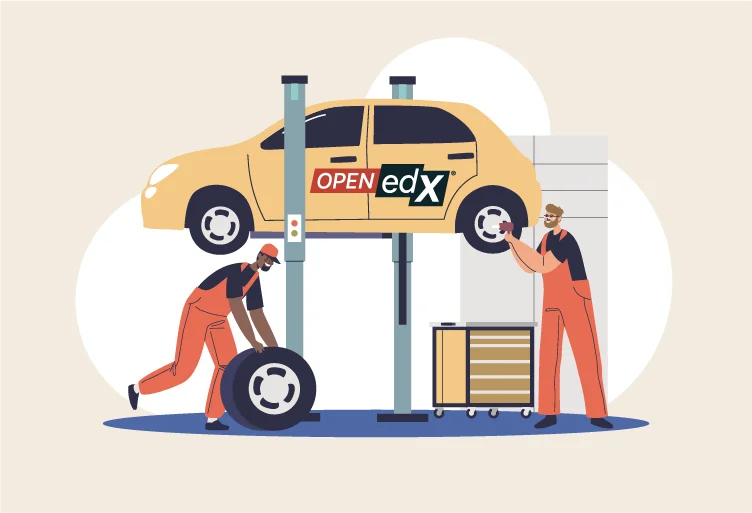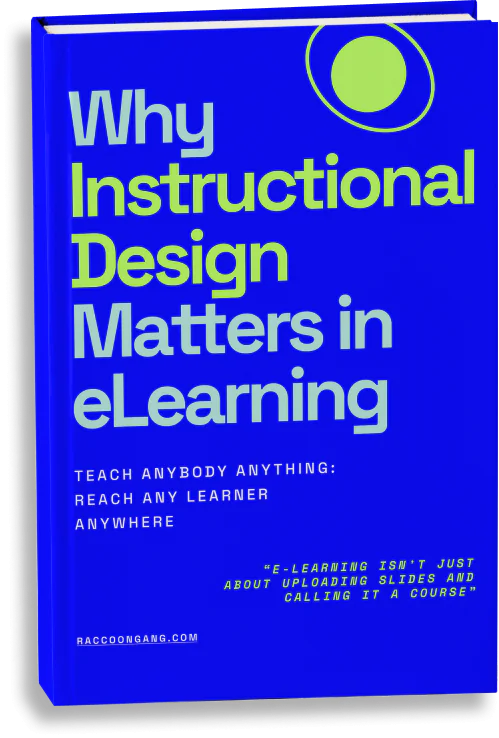Open edX releases new versions one to two times a year. While each upgrade brings functional improvements, many platform owners hesitate. The concern?
You may be asking yourself:
- Do I really need to upgrade my platform now?
- Could I keep using the version I already have?
- Or would it be safer to wait for the next release for my platform update?
Upgrading Open edX without a clear understanding of why and a clear understanding of how to do it can lead to real problems, especially if your platform relies on deep customization or third-party integrations.
But skipping upgrades isn’t the answer either. Doing so puts you at risk of missing out on security patches, performance enhancements, and compatibility with updated tools. That’s why Open edX upgrades should be treated as a strategic process, not just a technical task.
In just a few minutes, you’ll get answers to key questions about the Open edX upgrade process in 2025, so your LMS stays reliable, up to date, and ready to scale.
When and Why to Upgrade Open edX
Every Open edX version update can affect the performance of your platform in one way or another. Unlike the constant updates to your mobile apps (it’s really annoying when the YouTube or Instagram app updates almost every day), updates to complex platforms like Open edX actually carry essential security patches, performance fixes, and compatibility improvements every time.
Breakages, unexpected downtime, or new issues that disrupt the learning experience, not to mention security vulnerabilities, are all risks that skipping the Open edX upgrade can bring. But let’s talk about everything in order.
Security Improvement
Security forms the basis of every Open edX update. Each version introduces critical security improvements within libraries and frameworks. As the platform evolves, so do the defenses against vulnerabilities. It’s essential to note that the highest level of security assurance is found solely in the latest supported versions. Updating based on security considerations ensures your platform’s resilience against emerging threats.
Maintenance Enhancement
The Open edX community, including contributors like Raccoon Gang, monitors support windows for maintenance, databases, Django updates, and operating systems. Each new release aligns the platform with current versions of these essential services and windows, ensuring full compatibility. For instance, the transition from Django 3 to Django 4 showcases the community’s dedication to keeping pace with technology.
Performance Optimization
Continuous community efforts toward performance enhancement manifest in the Open edX version updates. The platform undergoes a performance boost by regularly updating the core libraries (Python, React, Django). This directly translates to cost reduction in hosting under similar loads. For example, the introduction of Micro-Frontends for Learning (MFE Learning) epitomizes this progress. It enables the platform to efficiently present course content in parts, thereby concurrently supporting a larger user base.
“Missing new features and improvements can reduce efficiency, making the platform harder to use for both learners and content creators.” — Open edX Migration Specialist at Raccoon Gang
UI/UX Refinement
New versions of Open edX mark significant improvements in usability and user experience through the adoption of Micro-Frontend architectures. Even for those without customized versions, updating grants access to these advancements. Regular updates transform the platform, introducing new MFEs with every release, enriching the user experience while empowering administrators with enhanced Open edX customization options.
Improvement of Localization and Translation
The Open edX community prioritizes inclusivity through the dedicated endeavors of the Translation Working Group. The platform’s commitment to localization and translation shines brighter with every new version release. Each iteration witnesses a heightened percentage of localization, ensuring comprehensive accessibility across a global audience.
Every new release indicates an expanded list of available languages, enriching the platform’s reach and usability. Simultaneously, the quality and depth of localization for existing languages witness continual refinement, ensuring a more immersive and engaging experience for learners and educators alike.
Development Excellence
Behind the scenes, dedicated working groups within the community focus on refining the development process itself. This relentless pursuit aims to minimize challenges faced by vendors, enhancing the end-user experience. Regular updates serve as the gateway to benefiting from these continuous improvements, ensuring a seamless and robust platform experience.
Additional Potential Risks of Staying on an Outdated Release
| Risk | Consequence |
| Scalability Challenges | As course structures and user demands evolve, old architecture may struggle to support large-scale deployments, requiring costly workarounds. |
| Backward Incompatibility | Limiting the ability to expand capabilities or integrate with modern tools. |
| Mobile Compatibility Issues | As mobile usage grows, a lack of optimization for newer devices and operating systems can degrade the user experience. |
| Higher Long-Term Migration Costs | Delaying the upgrade increases the complexity of future transitions, requiring more resources to update outdated dependencies and refactor custom features. |
| Risk of Service Disruptions | If critical failures occur due to aging infrastructure, this may lead to prolonged downtime and the necessity of recurring emergency fixes. |
“What Happens If You Skip Multiple Versions? Skipping multiple versions often means a more complex upgrade path. You may need to resolve deprecated dependencies, incompatible plugins, and data migration steps. This often results in a longer and more expensive upgrade process.” — Open edX Migration Specialist at Raccoon Gang
What to Do Before Upgrading Open edX LMS
Okay, you’ve decided to upgrade your LMS instance. What to do first and what to do second—these questions may logically arise for you at this stage. So, every Open edX update process begins with planning. It’s like first setting the coordinates in a GPS before going somewhere on your weekend.
Checklist for your ease of upgrading
- Back up all data. Create a full backup of your LMS. Backup may include (course content, user data, and configurations).
Remark from Raccoon Gang → Your every upgrade should include a backup and rollback plan.
- Review the official release notes. Check the latest available version of the Open edX platform. Does the new version include changes that could potentially improve your current instance? For example, it could be deprecated features, updated dependencies, or known issues.
- Test in a development environment. Never upgrade directly on your production server. A dev environment will help you test the compatibility of the new version with your customizations, third-party tools, and existing workflows.
- Check compatibility with customizations. If your platform includes custom modules or advanced theming, confirm they still work after the upgrade. Some features may require adjustments to match the new version.
- Plan for potential downtime. Remember, you should schedule your update for low-traffic periods and inform your users in advance. There is a high chance that an upgrade may cause temporary service interruptions. Give yourself time to fix this before anyone else sees it.
- Assign responsibilities and review your rollback plan. Make sure your tech team knows who’s doing what during the upgrade. Review your rollback steps in case you need to restore the previous version.
How Raccoon Gang Supports Open edX Upgrades
What makes Open edX upgrade services different from Raccoon Gang, in a good way, is that we have been an official Open edX partner for 10 years. What does this mean for you as a customer?
Our team of Open edX developers is part of the core group of platform contributors. That means:
- They are the first to know about all upgrades and new features.
- They are directly involved in their development.
Here’s how we support your upgrade beyond the basics:
Autoscaling built-in
- Adjusts hosting resources automatically
- Reduces costs during low-load periods
- Maintains stability during traffic spikes
- Keeps your LMS responsive without overspending
Customization through pluginization
- Keeps custom features encapsulated and easy to manage
- Simplifies migration during platform upgrades
- Improves long-term flexibility
- Reduces technical debt
Flexible feature delivery
- Custom enhancements can be proprietary — used only by your platform
Open edX core integration
- Features can be merged into the platform’s core
- Ensures future support and version compatibility
Common Challenges in Open edX Upgrades & How to Solve Them
Every Open edX upgrade comes with technical risks, but most issues can be avoided with the right approach. Here are some common problems teams face during the Open edX platform upgrade process, along with ways to solve them:
- Downtime and performance issues
Solution: Always test the Open edX platform upgrade in a staging environment first. This helps you catch errors early and ensures your production site stays stable during deployment.
- Plugin and third-party integration failures
Solution: Run full compatibility checks for all plugins and external services before upgrading. If needed, update or replace unsupported tools to prevent system conflicts.
- Data loss risks
Solution: Create a complete backup of your platform, including user data and course content, before you start. A rollback plan should also be in place in case something goes wrong.
- Custom feature breakage
Solution: Review custom modules and themes during planning. Modular code and pluginization help minimize upgrade friction.
- Lack of internal resources or expertise
Solution: If your team isn’t experienced with complex upgrades, work with Open edX developers who understand the platform’s architecture and can reduce the risk of critical errors.
“When we plan ahead and follow best practices, we can handle the Open edX upgrade process with confidence.” — Open edX Migration Specialist at Raccoon Gang
Bottom Line
We hope that at this point, it has become easier for you to understand the key aspects of upgrading the Open edX platform.
What we want to emphasize once again is that with the right strategy, staging, and support, the process can be smooth. Even for highly customized systems, the upgrade won’t be a problem if it’s performed according to the checklist we provided earlier in the article.
However, if you still have doubts about whether an upgrade makes sense or if your team lacks the resources to carry it out, Raccoon Gang can be your eLearning guide in this project. → Learn more about our Open edX upgrade services.
FAQ
How do I know if my Open edX version needs an upgrade?
Check the release notes at [docs.openedx.org]. Most of the time, each update will make your platform more reliable. For a more strategic approach, contact an official Open edX vendor like Raccoon Gang—our specialists will help you assess whether an update is needed in your case.
How long does an Open edX upgrade process take?
The duration of the upgrade depends on the release details. It may take longer if your platform customization includes a lot of plugins.
Will upgrading Open edX affect my existing course content?
A professionally executed upgrade will leave your course content unchanged. Any necessary changes will be fully controlled by you.
Can I customize my Open edX upgrade to keep my integrations?
Yes. Integration support depends on your current setup and the software versions in use. Complex environments can be handled with the help of expert guidance.
How often should I update Open edX?
It depends on your goals. If you value security and strategic planning, regular updates are the best option. If your platform isn’t affected by each release, you can plan less frequent upgrades. We recommend contacting Raccoon Gang to help determine which updates are worth implementing.








